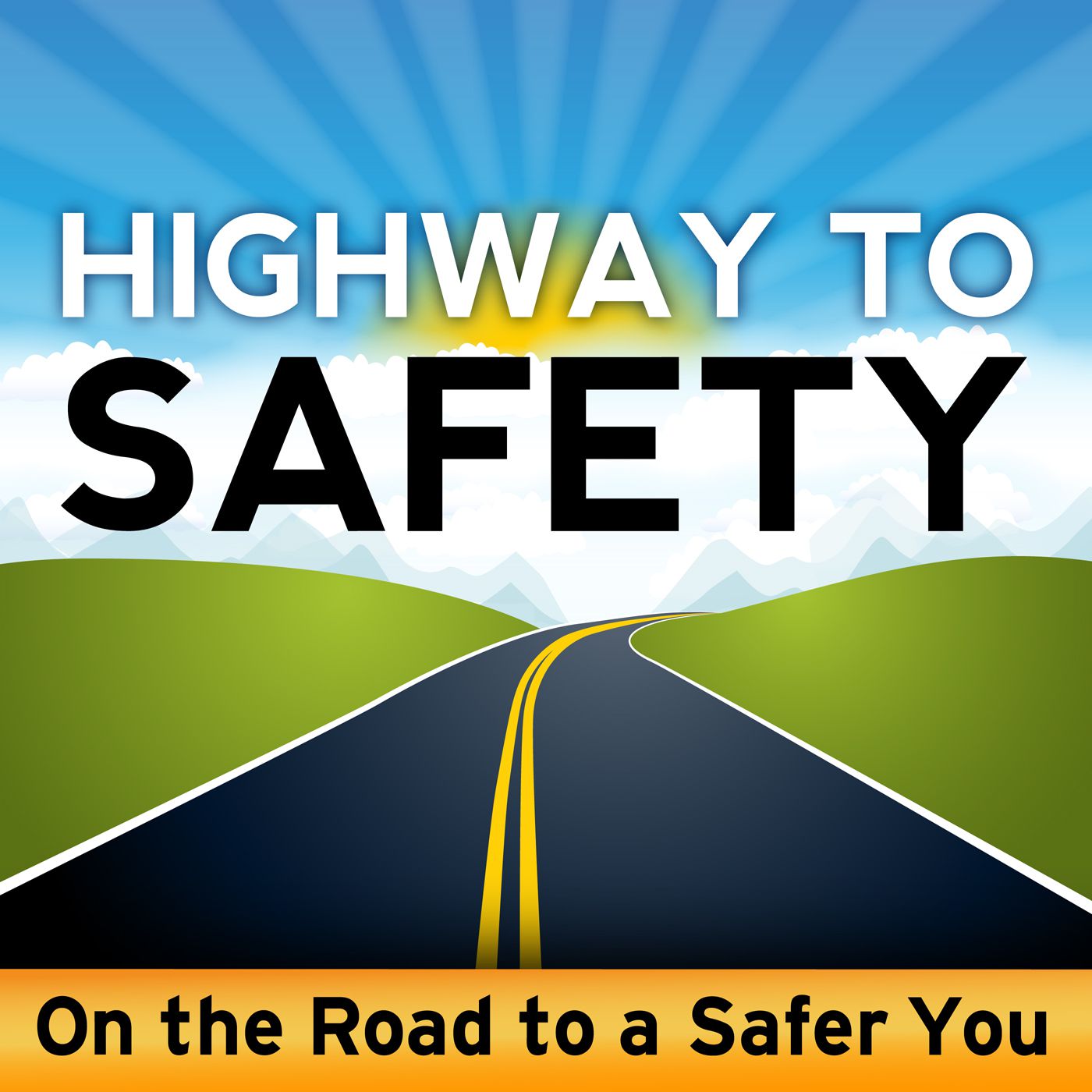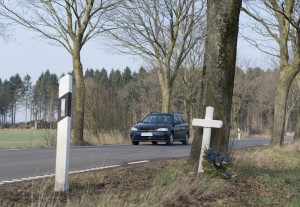18 – Driving and Cell Phones: The Grand Illusion
Description
April is Distracted Driving Awareness Month and this episode is part two of a four-part series examining distracted driving, and what we need to do to be safer drivers. In short, Dr. Paul Atchley’s response is to turn the cell phone off and put it away while we drive.
Dr. Atchley has been conducting research and teaching about cognitive factors related to driving for more than 20 years. During that time, he has published numerous peer-reviewed articles and chapters on issues of vision and attention including their relationship to driving, and in this episode of Highway to Safety Dr. Atchley discusses the myths of multi-tasking and our inability to actually see what is happening in front of us.
Cognitive Distractions: A Dangerous Activity
Distracted driving comprises one or more aspects: manual, visual, and/or cognitive. Cognitive distraction is the least obvious but potentially the most dangerous of the three. Driving in general is probably the most dangerous activity you will do during a day. The most likely cause of death for someone under the age of 25 is motor vehicle crashes; it is more likely than the next three causes combined. For someone 25 and older, motor vehicle crashes are the second most likely cause of death. Combine driving and a cognitive distraction and you have a recipe for disaster.
When considering the brain’s capabilities, language skills are a difficult task that takes years to perfect and are one of the first to fail as our brain ages. Talking and listening use a lot of our brain, although we don’t realize it since it becomes a routine activity. Talking on a cell phone while hands-free or not makes no difference. Both are risky when driving because the brain is engaged in a task that is not related to driving.
The Myth of Multi-Tasking
In today’s society, there is a push to be able to “multi-task.” Many people claim they can do it effectively. But being able to multi-task is a myth. The human brain cannot perform more than one task at a time, nor can it be trained to multi-task. Studies of fighter pilots attempting to train their brain to multi-task have demonstrated the futility of it.
A brain does not multi-task, it switches tasks, sometimes in milliseconds. Instead of giving full performance to two tasks, it choses which one the person has “said” is more important, and then focuses on that task. If necessary, the brain will switch back to another task when something happens. You can tell when the person you are speaking to on the other end of the phone is not fully engaged in the call—you get short answers, or “uh-huh” or “mmmm.” As soon as you point out to the person that he or she is not listening, the brain changes the focus, you get their full attention, and if that person is driving, it is the attention to driving that suffers.
The Grand Illusion
As humans, we have the ability to fool ourselves, or as Dr. Atchley calls it, The Grand Illusion. We believe we will see everything in front of us, but in actuality we do not have 180-degree vision. The brain actually fills in the details. Add to that the “task switching” the brain is doing, and you start to understand just how much of what is happening is not being recognized by the brain.
Distracted Driving and Cell Phones: More Myths
One thing that has not fooled the scientists who deal with the brain are cell phones and cognitive distraction. The research is clear: it creates a risk. Based on the research, Dr. Atchley favors a cell phone ban while the person is driving. Those opposed to a ban raise a variety of claims, including:
- Decreased business productivity
- Lack of public support
- Enforcement difficulties
Each of these beliefs has been shown through research and surveys to be false. They are additional myths. Fortune 500 companies that have imposed cell phone bans have seen no reduction in productivity, but they have seen a decrease in crashes and property damage. Surveys have shown that over two-thirds of the public support a full cell phone ban, and law enforcement has been able find ways to successfully enforce current laws regarding cell phone limitations.
Time to Be Proactive
When asked for recommendations on what to do about cell phones and driving, Dr. Atchley provides two recommendations:
First, parents have to be proactive with their teens. Surveys have found that 97% of students have texted while driving, even though they know it is can be more dangerous than driving drunk. Parents need to let their teens know that they will be checking their phone to determine when the phone was used. If a call or text happens at the same time a teen was driving, then the teen needs to suffer a consequence, such as the loss of phone privileges and driving.
Second, Dr. Atchley recognizes that the temptation to use a phone while driving is huge The easiest way to avoid the temptation is not to put yourself in the situation to begin with. When you get in the car, turn the phone off and put it in the trunk, in the glove box, in a purse or backpack and put those out of reach. No phone call or text is worth the additional risk. Put the phone away and focus on the driving.
Inattention Blindness Video
<iframe loading="lazy" title="selective attention test" width="770" height="578" src="https://www.youtube.com/embed/vJG698U2Mvo?feature=oembed" frameborder="0" allow="accelerometer; autoplay; clipboard-write; encrypted-media; gyroscope; picture-in-picture; web-share" referrerpolicy="strict-origin-when-cross-origin" allowfullscreen></iframe>
Related Links:
Websites:
Research
- Infographic – The Great Multi-tasking Lie (NSC)
- NSC – Cell Phone Underreporting
- NSC – Fortune 500 Survey








